Nazir Naji identifies some possible names for a future idealistic government of Pakistan comprising some of the 'most capable' persons as identified in various TV talk-shows.
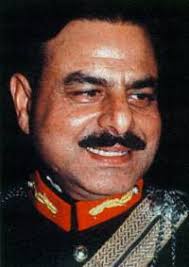
President: General Hamid Gul

Prime Minister: Munawar Hasan
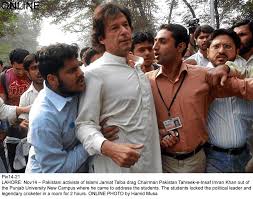
Minister for Religious Affairs: Imran Khan
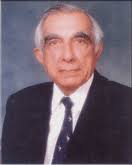
Roedad Khan: Interior Minister

Dr Shahid Masood: Minister for 'Dependent Care'

Qazi Hussain Ahmed: Ambassador to India
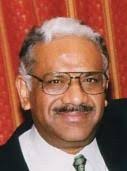
Shaheen Sehbai: Ambassador to Canada
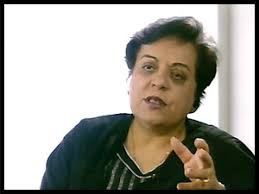
Shirin Mazari: Ambassador to the USA
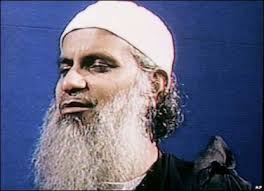
Abdul Aziz: Ambassador to the United Nations
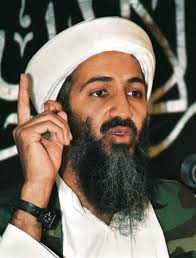
Osama Bin Laden: Ambassador at large

General Mahmud Durrani: Governor of the NWFP

Geneal Aslam Beg: Governor of Balochistan
%2520%2520Members%2520of%2520Parliament_files/na-56.jpg)
Hanif Abbasi: Governor of Punjab - part 1

Fazlur-Rehman: Governor of Punjab - part 2


Regime of ‘hostile’ TV anchors
Daily Times - Saturday, June 21, 2008
Two particular encounters on two TV channels Thursday night revealed the mind of the “misplaced or hostile anchor” in Pakistan. The first was a discussion among a group of TV journalists on the accusation levelled against them that they are no longer impartial in their conduct of talk shows and tend to favour a political stance. The “consensus” was that encroachments on institutions of representative democracy by military rulers could not be viewed with impartiality, and that a show of partiality was dictated by the anchors’ loyalty to the Constitution. One opinion was that this obligatory partiality must be accompanied by “objectivity”; but it was not clear how the state of being “objective” could be reconciled with the state of being “partial”.
The other discussion was an interview with Pakistan’s ambassador Mr Hussain Haqqani by a TV journalist noted for his acerbity of approach and bias. The topic was the attack made by NATO-ISAF forces inside Mohmand Agency which resulted in the death of 13 Pakistani troops, souring Pakistan’s relations between Washington. The ambassador, while acknowledging his duty to bring the umbrage of Pakistan to the notice of the Washington Administration in the most forceful of terms, also charged the TV person with the obligation of looking objectively at the situation in which Pakistan found itself. He asked him if he took account of the ground realities in the Tribal Areas where the war against terrorism was clearly in the national interest of Pakistan. The ambassador argued for “realism” in the handling of such crises as the one resulting from the attack in the Mohmand area. But the TV anchor demanded that Pakistan approach the United Nations for a solution to the problem of the growing breach of Pakistan’s “sovereignty” and “territorial integrity”. The ambassador pointed out that the Security Council was an arena of power play, not a kind of Supreme Court where all plaintiffs were equal. The TV anchor then fell back on the argument of “national pride” and claimed to represent the people of Pakistan, arguing in favour of Pakistan opting out of the international war on terrorism. He had no answer, however, to the question about what Pakistan would do after that, after its various trouble spots are bombed by a combination of forces united inside the US Security Council.
The patriotically “partial” TV anchors began by opposing a military ruler and are now caught in a situation of political bias under democracy because of the dictates of their partiality. The 2008 elections have delivered a political battlefield where elected parties are trying to move together despite their different recipes and solutions. What should the TV anchors do now? Normally, they should have moved back and become neutral, letting the discussions be fairly judged by the viewers, but they continue to pose as arbiters and decide on their own such matters as the “mandate” of the 2008 elections, the “immorality” of the NRO, and the rough dismissal of President Musharraf from his job. But when matters are in dispute between elected parties and in parliament, it is the duty of the media to remain impartial in order to allow the people to make their own judgements.
While highlighting the “complaints” against the TV channels, one must be clear, however, about the over-all role played by our electronic journalism. Despite their early “philosophical” gropings, the TV channels are a sine qua non of our lives and their foibles of “partiality” are dwarfed by their achievement of creating awareness among the people on all other economic and social matters. For example, in Punjab, Chief Minister Shahbaz Sharif is taking action, correctly, after watching TV reports on the malfunction of government institutions.
A sense of pride and sovereignty may take nations into war and humiliate them without making them understand what went wrong. This happened to Germany in the Second World War and in recent times to Serbia whose people, proud and sovereign, hate the world today for not understanding why they were killing Bosnians and Kosovars. But states don’t only feel aroused emotionally. They can also be cold-blooded. They can be motivated only by their self-interest whose pursuit might negate the state’s pride and sovereignty. When Iran and America confront each other, both tend to fly off the handle. In contrast, in Europe, where many nationalist wars were fought in the past, few feel as aroused.
Why shouldn’t a state feel emotional? Because being emotional may be contrary to its national interests. These interests are almost always economic. This is perfectly understandable because as long as a nation is prosperous and not dependent on outside creditors, its pride and sovereignty remain intact. But if a state is neglectful of its economy and pursues other emotional goals either unrelated or hostile to its economy it is bound to impose suffering on its people through the growth of poverty. And nothing removes pride and sovereignty from a nation more cruelly and quickly than poverty. Let us not forget that the organisation which kidnapped and beheaded the American journalist Daniel Pearl in 2002 called itself National Movement for the Restoration of Pakistani Sovereignty.
Daily Times - Saturday, June 21, 2008
Two particular encounters on two TV channels Thursday night revealed the mind of the “misplaced or hostile anchor” in Pakistan. The first was a discussion among a group of TV journalists on the accusation levelled against them that they are no longer impartial in their conduct of talk shows and tend to favour a political stance. The “consensus” was that encroachments on institutions of representative democracy by military rulers could not be viewed with impartiality, and that a show of partiality was dictated by the anchors’ loyalty to the Constitution. One opinion was that this obligatory partiality must be accompanied by “objectivity”; but it was not clear how the state of being “objective” could be reconciled with the state of being “partial”.
The other discussion was an interview with Pakistan’s ambassador Mr Hussain Haqqani by a TV journalist noted for his acerbity of approach and bias. The topic was the attack made by NATO-ISAF forces inside Mohmand Agency which resulted in the death of 13 Pakistani troops, souring Pakistan’s relations between Washington. The ambassador, while acknowledging his duty to bring the umbrage of Pakistan to the notice of the Washington Administration in the most forceful of terms, also charged the TV person with the obligation of looking objectively at the situation in which Pakistan found itself. He asked him if he took account of the ground realities in the Tribal Areas where the war against terrorism was clearly in the national interest of Pakistan. The ambassador argued for “realism” in the handling of such crises as the one resulting from the attack in the Mohmand area. But the TV anchor demanded that Pakistan approach the United Nations for a solution to the problem of the growing breach of Pakistan’s “sovereignty” and “territorial integrity”. The ambassador pointed out that the Security Council was an arena of power play, not a kind of Supreme Court where all plaintiffs were equal. The TV anchor then fell back on the argument of “national pride” and claimed to represent the people of Pakistan, arguing in favour of Pakistan opting out of the international war on terrorism. He had no answer, however, to the question about what Pakistan would do after that, after its various trouble spots are bombed by a combination of forces united inside the US Security Council.
The patriotically “partial” TV anchors began by opposing a military ruler and are now caught in a situation of political bias under democracy because of the dictates of their partiality. The 2008 elections have delivered a political battlefield where elected parties are trying to move together despite their different recipes and solutions. What should the TV anchors do now? Normally, they should have moved back and become neutral, letting the discussions be fairly judged by the viewers, but they continue to pose as arbiters and decide on their own such matters as the “mandate” of the 2008 elections, the “immorality” of the NRO, and the rough dismissal of President Musharraf from his job. But when matters are in dispute between elected parties and in parliament, it is the duty of the media to remain impartial in order to allow the people to make their own judgements.
While highlighting the “complaints” against the TV channels, one must be clear, however, about the over-all role played by our electronic journalism. Despite their early “philosophical” gropings, the TV channels are a sine qua non of our lives and their foibles of “partiality” are dwarfed by their achievement of creating awareness among the people on all other economic and social matters. For example, in Punjab, Chief Minister Shahbaz Sharif is taking action, correctly, after watching TV reports on the malfunction of government institutions.
A sense of pride and sovereignty may take nations into war and humiliate them without making them understand what went wrong. This happened to Germany in the Second World War and in recent times to Serbia whose people, proud and sovereign, hate the world today for not understanding why they were killing Bosnians and Kosovars. But states don’t only feel aroused emotionally. They can also be cold-blooded. They can be motivated only by their self-interest whose pursuit might negate the state’s pride and sovereignty. When Iran and America confront each other, both tend to fly off the handle. In contrast, in Europe, where many nationalist wars were fought in the past, few feel as aroused.
Why shouldn’t a state feel emotional? Because being emotional may be contrary to its national interests. These interests are almost always economic. This is perfectly understandable because as long as a nation is prosperous and not dependent on outside creditors, its pride and sovereignty remain intact. But if a state is neglectful of its economy and pursues other emotional goals either unrelated or hostile to its economy it is bound to impose suffering on its people through the growth of poverty. And nothing removes pride and sovereignty from a nation more cruelly and quickly than poverty. Let us not forget that the organisation which kidnapped and beheaded the American journalist Daniel Pearl in 2002 called itself National Movement for the Restoration of Pakistani Sovereignty.
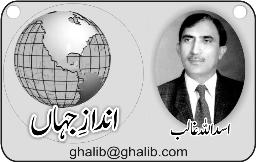

(Asadullah Ghalib - CallAnchors)





















2 comments:
How Many Faces of Shaheen Sehbai!
Human memory is weak particularly the memory of these so-called journalists that they often 'forget' as to what they had earlier written. One such example is of Mr Shaheen Sehbai who claimed the friendship with Asif Ali Zardari at the time of death of Benazir Bhutto. Read and lament
"QUOTE"
Why I cried, at last by Shaheen Sehbai The News, December 29, 2007
http://www.thenews.com.pk/top_story_detail.asp?Id=11950
She knew about all the long critical articles and stories that I had written during her first and thesecond tenures in government and would argue with force that the data and equipment that I quotedwas leaked, distorted and misrepresented by the establishment, reaching my hands through agentswhom probably I did not know but trusted as good news sources.But she also knew that whenever she was out of power, it was the same media, the same writers andjournalists who stood by the persecuted and fought their case. In 1991 when Asif Ali Zardari was in Jam Sadiq Ali’s dreaded jail, shortly after Benazir had been removed as Prime Minister, she recalledthat journalists from Islamabad were the first to go and meet him, in jail, despite Jam’s fierceresistance. I was part of those six journalists, others including Nusrat Javeed, late Azhar Sohail andShakeel Sheikh, and had been invited by Jam Sadiq to tour Sindh at his expense but write what wesaw. That we did and almost every article shredded the late tyrant’s claims of peace and tranquillity inSindh. That jail visit was where we all began a long lasting friendship with Asif Zardari.
Which Report of Shaheen Sehbai [The News] is to believed?
Sindh is angry and Punjab is not helping By Shaheen Sehbai Sunday, January 06, 2008
http://www.thenews.com.pk/top_story_detail.asp?Id=12113
KARACHI: Deeply aggrieved, full of anger and passionately in mourning, Sindhis are baffled and confused at the strange reaction in Punjab, specially the ruling elite which has adopted an aggressively parochial attitude, not just against the PPP but against entire Sindh, after the death of Benazir Bhutto. The accusations that large numbers of Punjabis have been forced to flee Sindh and become refugees in their province may help the PML-Q leaders rebuild their shattered election campaign but it is certainly not helping national unity and the cause of the federation of Pakistan. Mr Asif Ali Zardari and Bilawal Bhutto made extra efforts in their early appearances before the media to send the message across that the PPP still wanted the federation, as it did when Benazir Bhutto was alive. But this message has been distorted by Punjab. This transition from protests and fury on the streets to revenge through democracy has been remarkably smooth. As we drove hundreds of miles in PPP and non-PPP territory, life had come to almost normal and only the remnants of the burnt out trucks, especially NLC containers and car-carriers, reminded us of the angry reaction. The first hurdle has successfully been crossed by the PPP, headed by Mr Zardari to control the people and turn them into highly motivated and committed workers.
And after almost two years the same Shaheen Sehbai says...
All power players focus on constitutional knock-out By Shaheen Sehbai Friday, October 23, 2009 Kerry-Lugar law’s Muridke clause alienates Army from; NRO-hit presidency; Zardari falls back on Nawaz; ready to give up 17th Amendment powers
http://thenews.jang.com.pk/top_story_detail.asp?Id=25146
this is one of the most hilarious columns I've ever read, great work by Naji sahib
Post a Comment
1. You are very welcome to comment, more so if you do not agree with the opinion expressed through this post.
2. If you wish to hide your identity, post with a pseudonym but don't select the 'anonymous' option.
3. Copying the text of your comment may save you the trouble of re-writing if there is an error in posting.